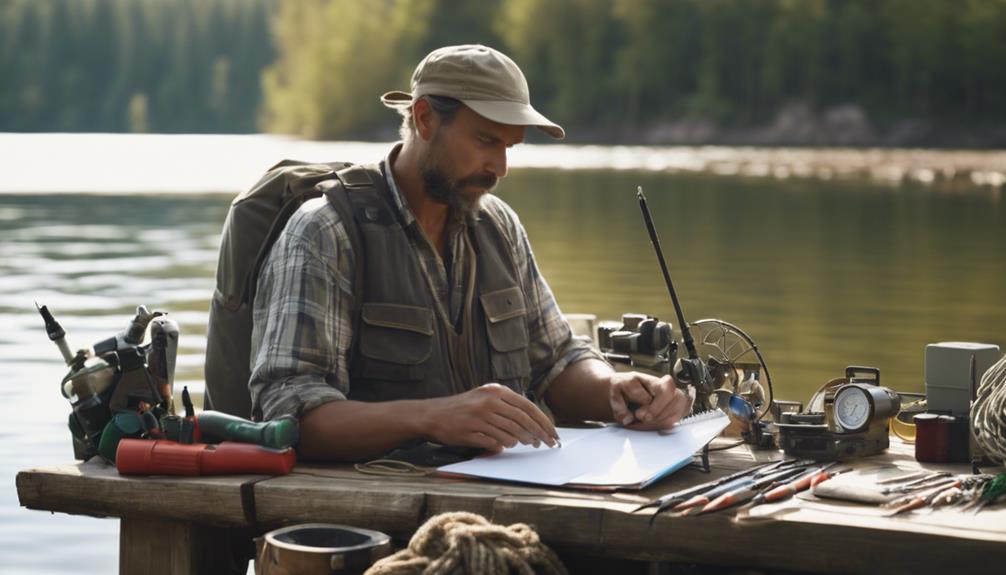Fishing is not just a popular pastime; it’s a way for many to connect with nature, relax, and even provide food for their families. However, before you cast your line, there’s one important step you’ll need to take: obtaining a fishing license. In this comprehensive guide, we’ll walk you through everything you need to know about what you need for a fishing license, including the types of licenses available, how to apply, and necessary equipment.
Understanding the Importance of a Fishing License
When asking, “What do I need for a fishing license?” it’s crucial to first understand why these licenses are necessary. Fishing licenses are required by law in most regions and serve several purposes. They help regulate fishing populations, protect aquatic ecosystems, and ensure that only those who are informed about fishing regulations participate. By requiring a license, wildlife agencies can monitor and manage fish populations, contributing to the sustainability of our natural resources.
Types of Fishing Licenses Available
When considering what you need for a fishing license, it’s essential to know that there are various types of licenses available, depending on your age, residency status, and the type of fishing you want to do. Common types include:
1. Resident Fishing License: For individuals who reside in the state where they are fishing.
2. Non-Resident Fishing License: For those who wish to fish in a state where they do not reside.
3. Youth Fishing License: Often available at a reduced price for younger anglers.
4. Senior Fishing License: Discounts are typically available for senior citizens.
5. Specialty Licenses: These may include licenses for specific types of fishing, such as saltwater or fly fishing.
Each state has its own regulations regarding the types of licenses available, so it’s essential to check with your local wildlife agency.
Age and Residency Requirements
When you are inquiring about what you need for a fishing license, consider the age and residency requirements. Many states have different regulations regarding who qualifies for a resident license versus a non-resident license. Additionally, some states offer free or discounted licenses for youth and seniors. Typically, you may need to provide proof of residency, such as a driver’s license or utility bill, and proof of age if applying for a youth or senior license.
Necessary Documents for Application
To obtain a fishing license, you’ll need to prepare several documents. Understanding these requirements is crucial for a smooth application process. Commonly required documents include:
– Identification: This could be a government-issued ID or driver’s license.
– Proof of Residency: This is often necessary for resident licenses. Acceptable documents include utility bills, lease agreements, or voter registration cards.
– Social Security Number: Some states require this information for identification purposes.
– Previous Fishing License: If you’ve held a fishing license in the past, having this information can expedite the process.
Before you apply, check your local regulations to ensure you have all the necessary documents on hand.
How to Apply for a Fishing License
Now that you know what you need for a fishing license, it’s time to discuss the application process. Most states offer several methods for applying, including:
1. Online: Visiting your state’s wildlife agency website is often the quickest and most convenient option. Many states now provide online applications that allow you to pay the fee using a credit or debit card.
2. In-Person: You can apply for a fishing license at local wildlife offices, sporting goods stores, or authorized retailers. This option allows you to ask questions if you have any uncertainties.
3. By Mail: Some states still allow you to apply for a fishing license by mailing in your application. Be sure to include all necessary documents and payment.
Regardless of the method you choose, be sure to keep a copy of your application and any confirmation numbers you receive.
Fees Associated with Fishing Licenses
When considering what you need for a fishing license, it’s essential to take into account the associated fees. The cost of a fishing license can vary significantly depending on the type of license and your state’s regulations. Generally, resident licenses are cheaper than non-resident licenses. Additionally, many states offer multi-year licenses that can provide savings over time. Be sure to check for any additional fees that may apply, such as processing fees for online applications.
Additional Requirements: Fishing Regulations and Guidelines
Obtaining a fishing license is just one part of the equation; you must also familiarize yourself with local fishing regulations and guidelines. These regulations can include:
– Size and Bag Limits: Many states impose restrictions on the size and number of fish you can keep.
– Seasonal Restrictions: Some bodies of water may have specific open and closed seasons for fishing certain species.
– Bait and Tackle Restrictions: Certain areas may have regulations regarding what types of bait and tackle can be used.
Understanding these regulations is crucial for responsible fishing and avoiding fines or penalties.
Conclusion: Getting Ready for Your Fishing Adventure
As you prepare for your fishing adventure, remember that the first step is obtaining your fishing license. In summary, you need to know the types of licenses available, your age and residency requirements, the necessary documents for application, and how to apply. It’s also essential to understand the fees associated with your license and any local fishing regulations you must follow. With this knowledge in hand, you’ll be well on your way to enjoying a rewarding fishing experience. Happy fishing!
